When it comes to establishing strong relationships with your suppliers, acknowledging their contracts is a crucial step. It's not just about the legalitiesâit's about fostering trust and open communication. By taking the time to recognize the agreements in place, you set a positive tone for collaboration and future endeavors. So, let's dive into the essential elements of a supplier contract acknowledgment letter and explore how it can benefit your business.

Supplier Details
Supplier contracts play a crucial role in establishing formal relationships between businesses and their suppliers. These agreements outline specific terms and conditions, including pricing structures, delivery schedules, and quality standards, essential for maintaining supply chain efficiency. A key aspect often highlighted in these contracts is the confidentiality clause, which protects sensitive information shared during the collaboration. This ensures that proprietary data regarding products or manufacturing techniques is safeguarded, fostering trust. Moreover, the contract typically includes a duration clause, specifying the time frame for which the agreement is valid, emphasizing the importance of evaluating supplier performance periodically. Addressing dispute resolution methods is vital; firms often prefer mediation or arbitration to maintain amicable relations while resolving potential conflicts.
Contract Terms and Conditions
An acknowledgment of supplier contract terms and conditions serves to affirm the mutual understanding between parties regarding responsibilities and obligations outlined in the agreement. Key elements include specific obligations related to delivery schedules, quality standards, and penalties for non-compliance, as outlined in the contract. Important dates such as the start date (often designated as the effective date) and duration of the contract (commonly one year with options for renewal) should be highlighted. The contract may also include clauses related to pricing structures (fixed vs. variable pricing), payment terms (net 30 days), and confidentiality agreements, ensuring proprietary information remains protected. Clear definitions of key terms, such as "force majeure" events impacting performance due to unforeseen circumstances, should be reiterated to prevent disputes. A thorough acknowledgment confirms both parties' agreement to uphold the stipulated terms, fostering a collaborative business relationship.
Agreement Acknowledgment
The recent acknowledgment of the Supplier Contract (Contract Number: 2023-SUP-045) solidifies a vital partnership between the purchasing company and the supplier, ensuring a seamless supply chain for critical materials. This agreement, effective from November 1, 2023, delineates the terms regarding pricing, delivery schedules, and quality assurance protocols. Both entities have committed to adhering to the specified obligations outlined in section 4, particularly emphasizing timely delivery procedures which are crucial for maintaining operational efficiency. Additionally, the contract includes performance metrics that will be evaluated on a quarterly basis, ensuring compliance with industry standards and fostering continuous improvement in the collaboration.
Communication Channels
Effective communication channels establish a strong foundation for supplier contracts and ensure clarity between the involved parties. Methods of communication such as email exchanges, telephone calls, and video conferences play crucial roles in managing supplier relationships and facilitating discussions surrounding contract terms. Tools like project management software can streamline communication by providing a centralized platform for document sharing and status updates. In addition, regular meetings--whether weekly or bi-weekly--can help maintain alignment on expectations and timelines. Establishing clear points of contact, including names and roles, minimizes confusion and enhances responsiveness across the organization. It is essential to document all communications to ensure a transparent record of discussions and agreements, supporting accountability throughout the contract's lifespan.
Signature Confirmation
Acknowledgment of a supplier contract creates a crucial step in formal business relationships. When a company secures a contract with a supplier, typically involving products or services, it is vital to formally confirm the receipt and acceptance. This acknowledgment often includes essential elements like the company name, supplier details, contract terms, and specific products, such as electronic components or raw materials. The contract may specify quantities, delivery timelines, and payment terms, ensuring both parties have a clear understanding of the agreed conditions. The confirmation signature from authorized personnel, typically a procurement manager or director, marks the official commitment to the contract terms, establishing a solid foundation for future transactions. A prompt response, usually within 5 business days, reinforces professionalism and reliability in the supplier relationship.

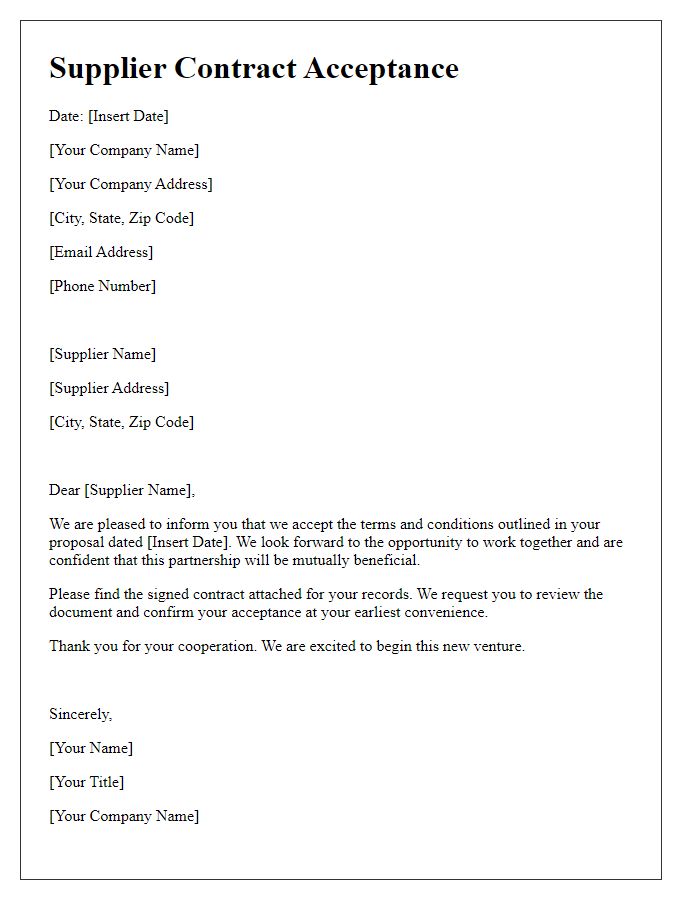
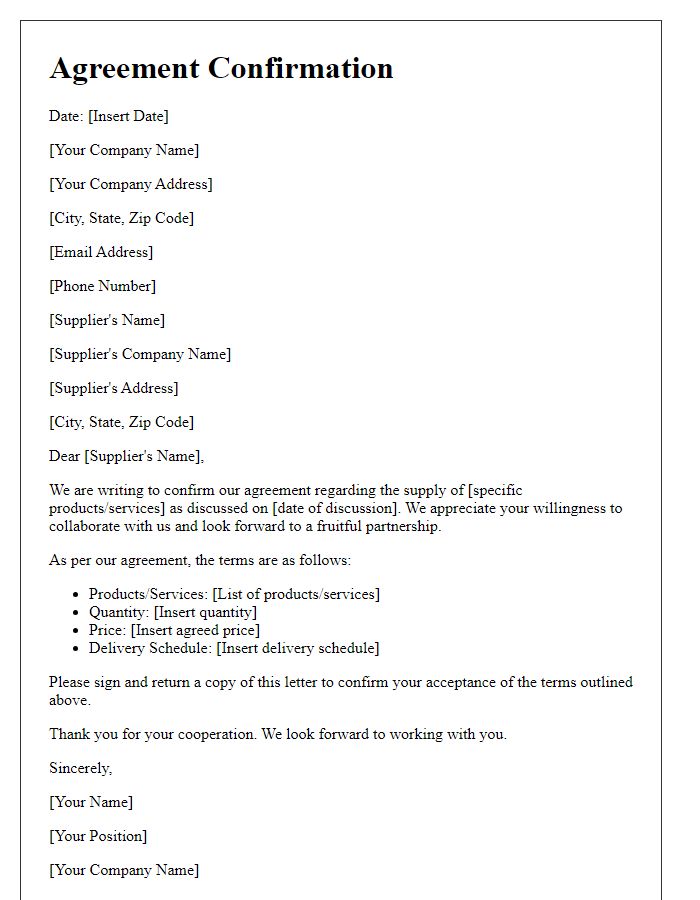
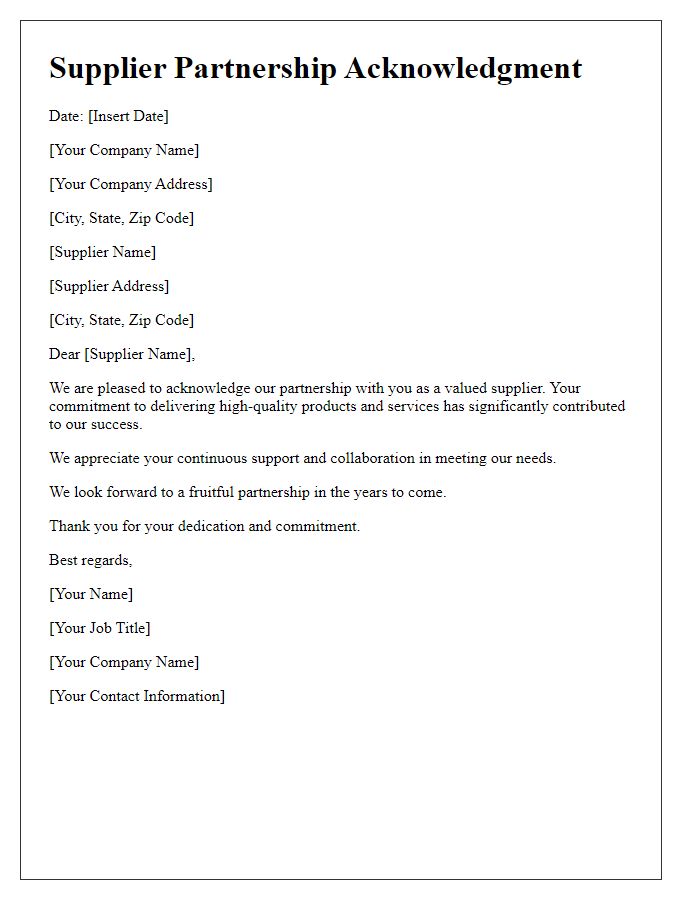
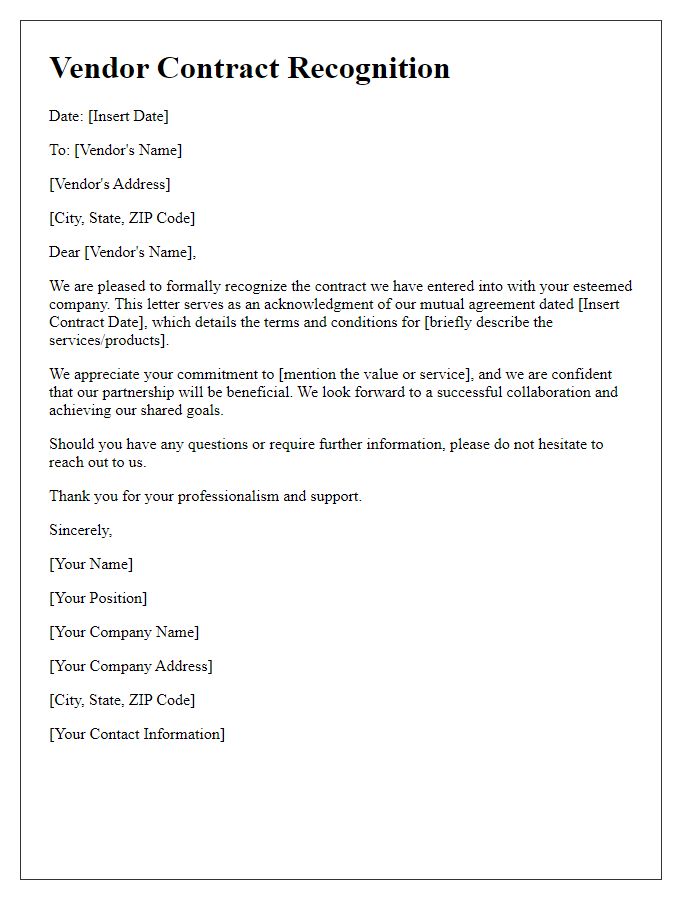
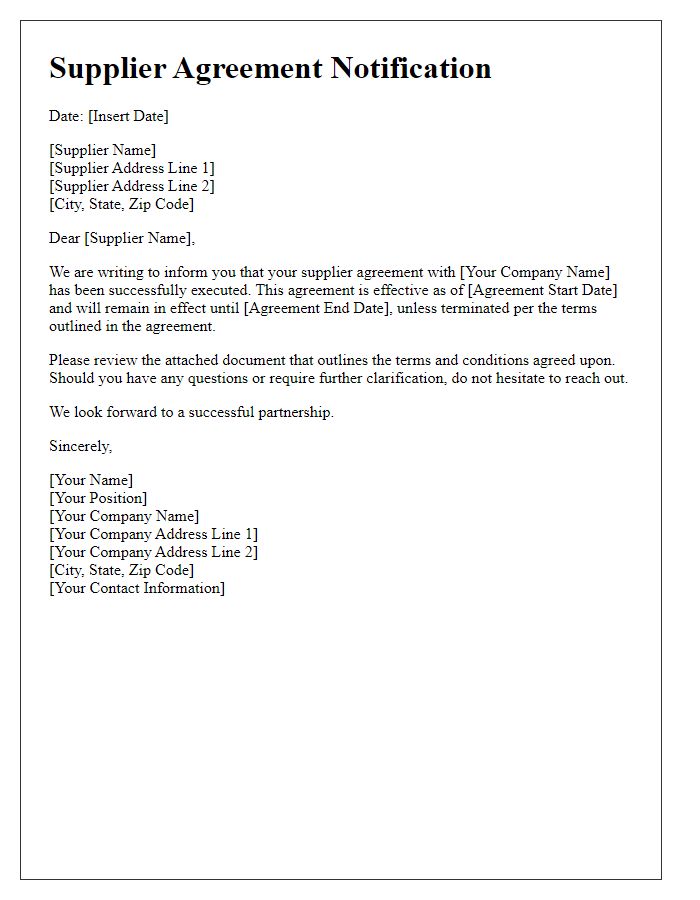
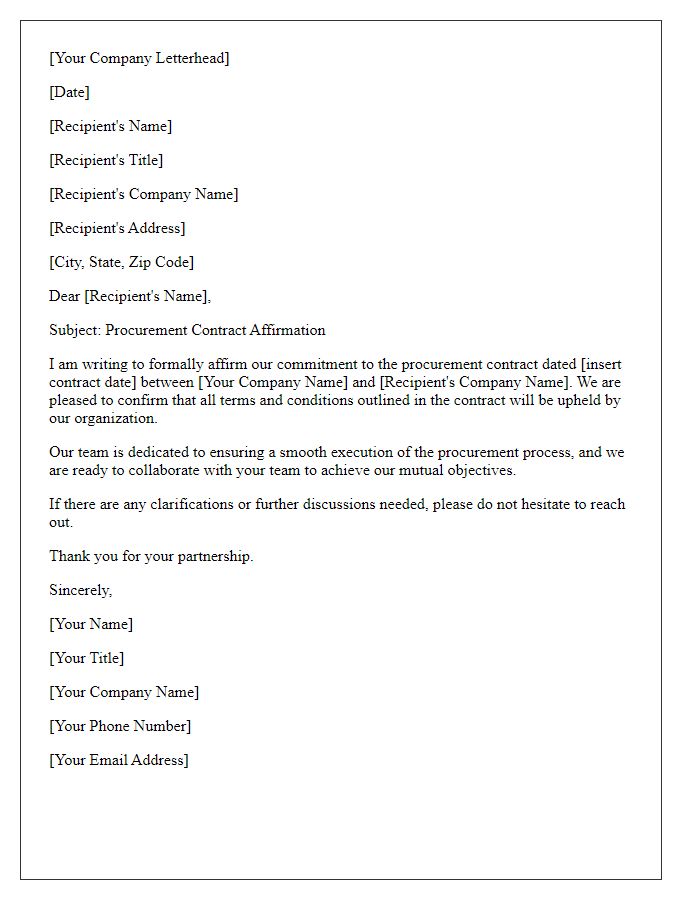
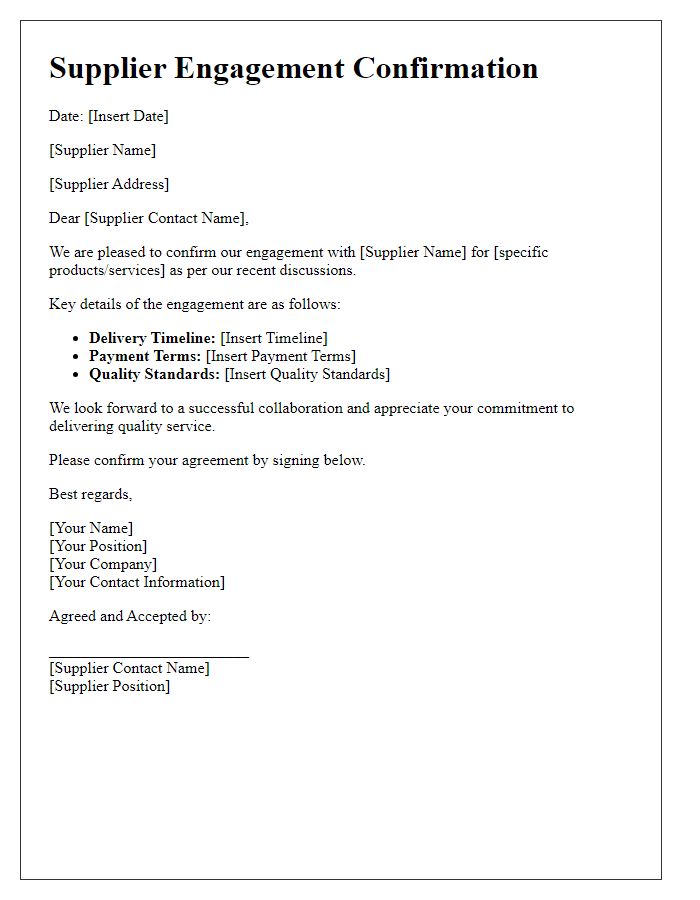
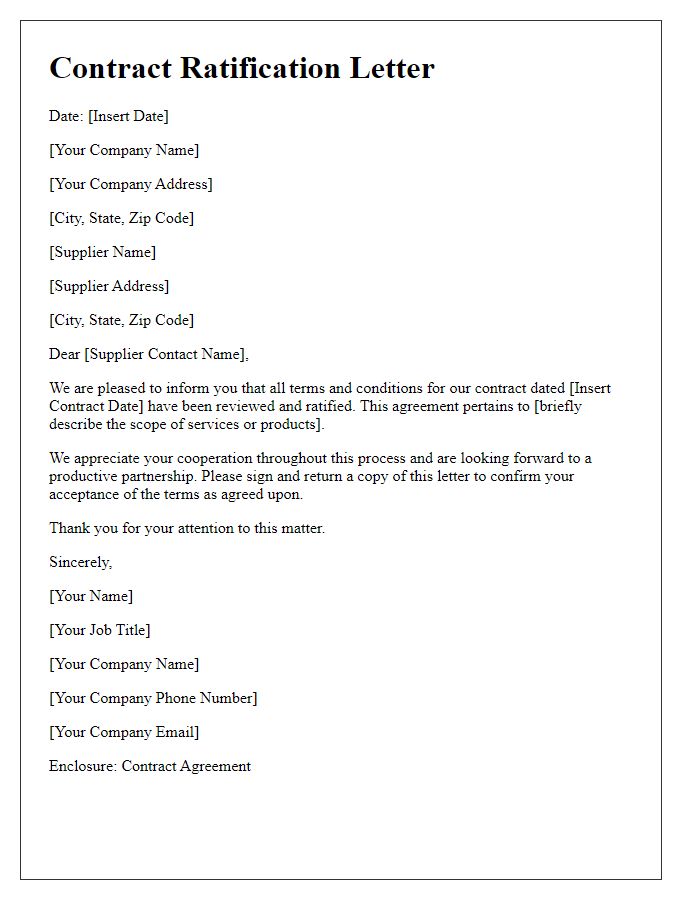
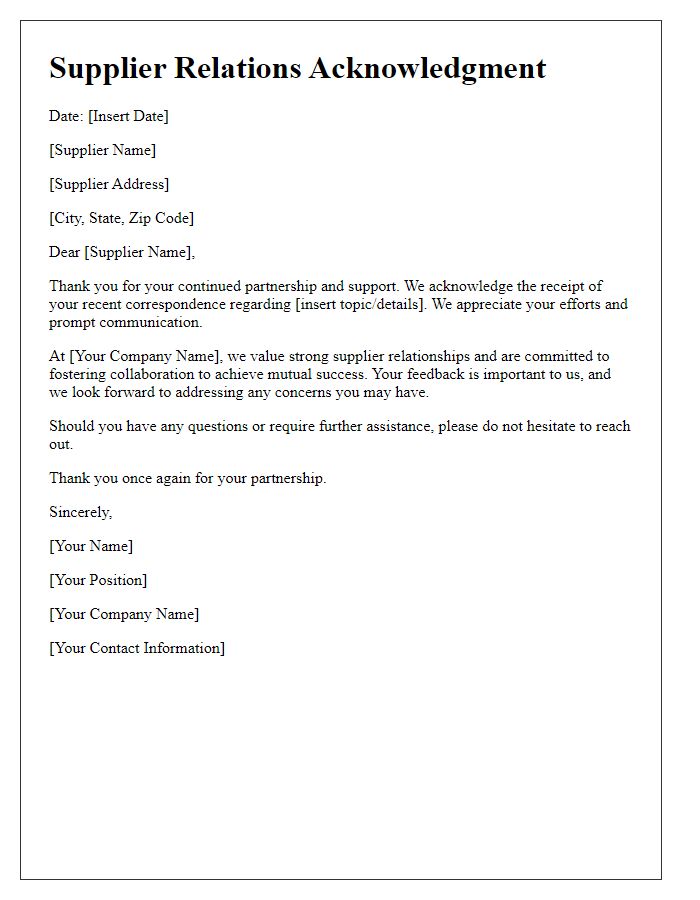
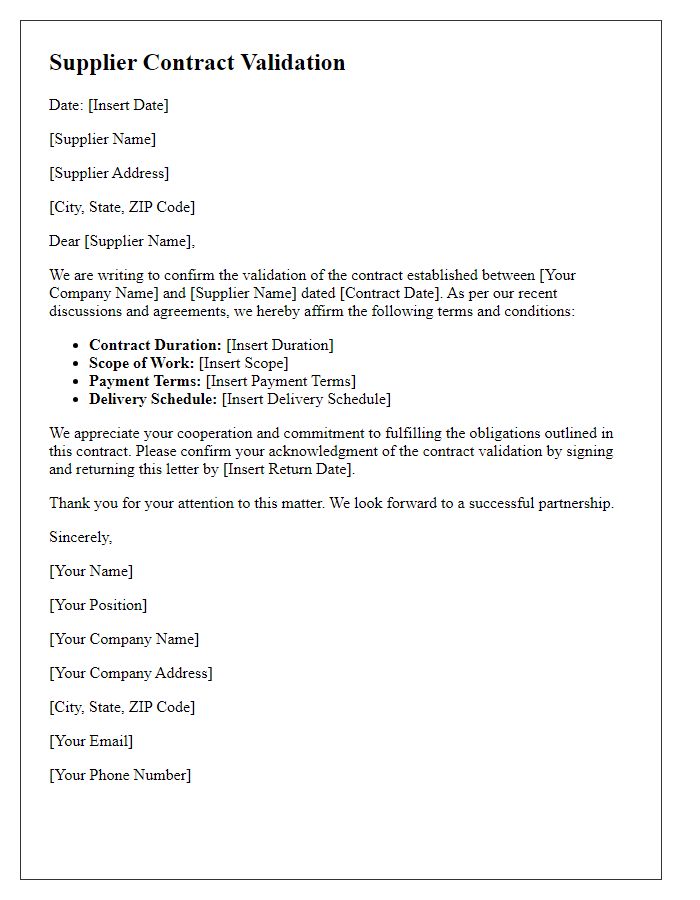

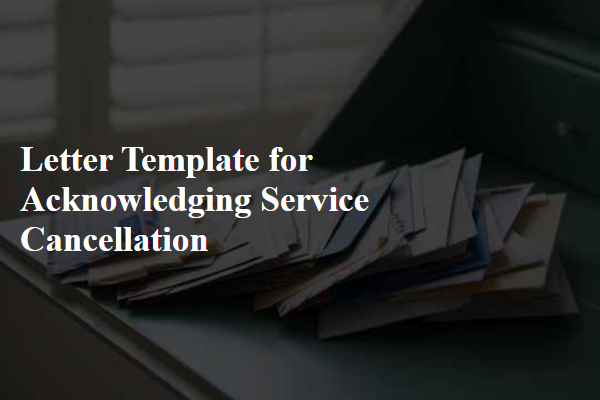
Comments